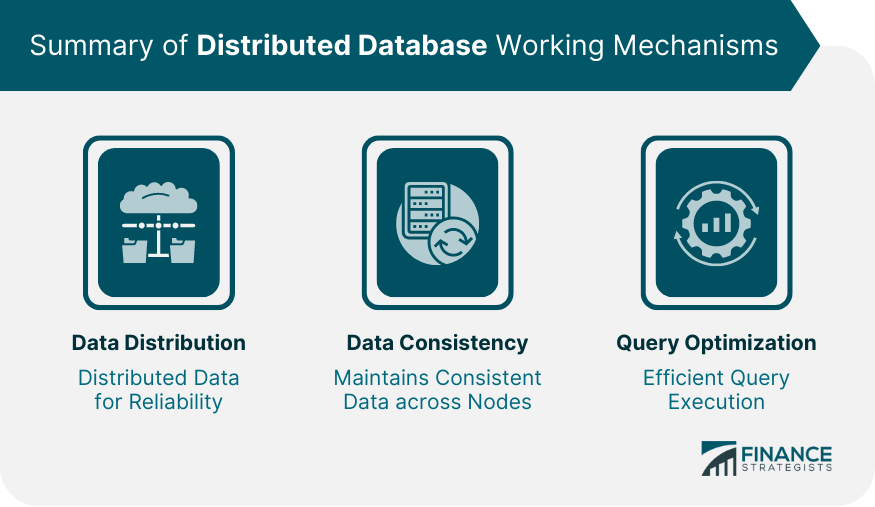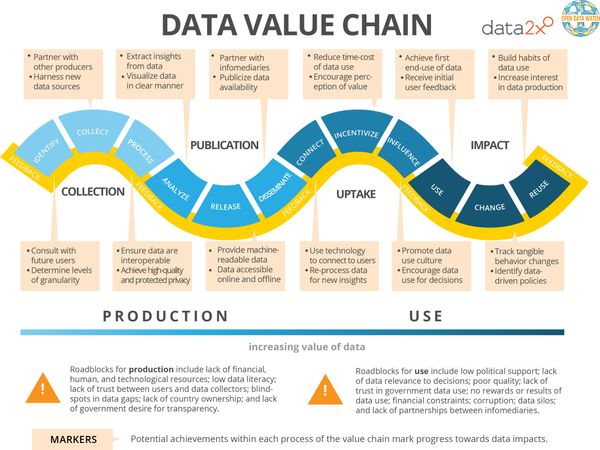Overview
Introduction to data security
Data security is a critical aspect in database optimization. In today’s digital age, where vast amounts of sensitive information are stored and exchanged, it is essential to ensure the confidentiality, integrity, and availability of data. The introduction to data security sets the foundation for understanding the importance of safeguarding data in database optimization. By implementing robust security measures, organizations can mitigate the risks associated with unauthorized access, data breaches, and other security threats. This paragraph highlights the significance of data security and its relevance in the context of database optimization.
Importance of data security in database optimization
Data security plays a crucial role in the optimization of databases. It is of utmost importance to ensure that sensitive information is protected from unauthorized access, manipulation, and theft. In today’s digital age, where data breaches are becoming increasingly common, organizations must prioritize the implementation of robust security measures. By investing in data security, businesses can safeguard their valuable data assets, maintain the trust of their customers, and comply with regulatory requirements. Furthermore, a secure database environment enhances overall system performance and minimizes the risk of data corruption or loss. Therefore, it is imperative for businesses to recognize the significance of data security in database optimization.
Challenges in ensuring data security
In today’s digital age, ensuring data security is a critical aspect of any organization’s database optimization efforts. However, there are several challenges that need to be addressed in order to effectively protect sensitive information. One of the key challenges is optimizing SQL queries to enhance performance without compromising data security. By fine-tuning and streamlining SQL queries, organizations can improve the efficiency of their database operations while ensuring that data remains secure. This involves identifying and eliminating any potential vulnerabilities or loopholes that could be exploited by malicious actors. Another challenge is staying up to date with the latest security measures and technologies. As cyber threats continue to evolve, it is essential for organizations to regularly update their security protocols and implement robust encryption methods to safeguard data. Additionally, data security should be a collaborative effort involving all stakeholders, including database administrators, developers, and end-users. By promoting a culture of security awareness and providing comprehensive training, organizations can minimize the risk of data breaches and unauthorized access. Overall, addressing the challenges in ensuring data security is crucial for organizations to optimize their databases and maintain the confidentiality, integrity, and availability of their valuable data.
Data Security Measures

Encryption techniques
Data security is a critical aspect of database optimization, and encryption techniques play a crucial role in ensuring the confidentiality and integrity of sensitive information. Encryption involves converting data into a format that can only be accessed or understood with the use of a decryption key. This technique provides an additional layer of protection against unauthorized access and potential data breaches. Database administration professionals must be well-versed in various encryption techniques to effectively safeguard the data stored in databases. By implementing robust encryption methods, such as symmetric and asymmetric encryption, database administrators can mitigate the risk of data theft and unauthorized modifications. Additionally, encryption techniques can also help organizations comply with data protection regulations and maintain customer trust in their data security practices.
Access control and user authentication
Access control and user authentication are crucial components in ensuring data security in database optimization. Access control refers to the process of selectively granting or denying permissions to users or groups based on their identity or role. It ensures that only authorized individuals have the necessary privileges to access and manipulate the data stored in the database. User authentication, on the other hand, verifies the identity of users before granting them access to the system. This is typically done through the use of usernames and passwords, or more advanced authentication methods such as biometrics or two-factor authentication. By implementing robust access control mechanisms and user authentication protocols, organizations can effectively protect their databases from unauthorized access and potential security breaches.
Regular data backups
Regular data backups are one of the crucial DBA tasks to ensure data security in database optimization. By regularly backing up the data, organizations can protect against data loss due to hardware failures, system crashes, or malicious activities. These backups serve as a safety net, allowing for the recovery of data in case of any unforeseen events. Additionally, regular backups enable organizations to meet compliance requirements and maintain business continuity. It is important for organizations to establish a robust backup strategy that includes scheduling regular backups, testing the backup and restore processes, and storing backups in secure locations. By prioritizing regular data backups, organizations can mitigate the risks associated with data loss and ensure the integrity and availability of their data.
Database Optimization Techniques

Indexing and query optimization
Indexing and query optimization are crucial aspects of database optimization. By properly indexing the database, queries can be executed more efficiently, resulting in improved performance and faster response times. Query optimization involves analyzing the queries and making necessary adjustments to optimize their execution. This includes rewriting queries, rearranging joins, and using appropriate indexing techniques. Implementing best practices for indexing and query optimization is essential to ensure data security and maximize the efficiency of database operations.
Data compression techniques
Data compression techniques are essential in ensuring data security in database optimization. By compressing data, organizations can reduce storage space requirements and improve data transfer speeds. There are several techniques available for data compression, including lossless compression and lossy compression. Lossless compression algorithms ensure that no data is lost during the compression process, making it ideal for sensitive data. On the other hand, lossy compression algorithms sacrifice some data accuracy to achieve higher compression ratios. Organizations must carefully choose the appropriate compression technique based on their specific data security requirements. Additionally, encryption can be applied to further enhance data security in compressed databases.
Partitioning and sharding
Partitioning and sharding are two important techniques used in database optimization. Partitioning involves dividing a large database into smaller, more manageable partitions. Each partition contains a subset of the data and can be stored on separate physical devices. This allows for parallel processing and improves query performance. Sharding, on the other hand, involves distributing the data across multiple servers or nodes. Each shard contains a portion of the data and can handle its own set of queries. By distributing the workload, sharding helps to scale the database and improve overall performance. Both partitioning and sharding play a crucial role in optimizing database query execution.
Integration of Data Security and Database Optimization

Balancing data security and performance
When it comes to database optimization, striking a balance between data security and performance is crucial. Organizations need to ensure that their databases are optimized for efficient data retrieval and processing, while also safeguarding sensitive information from unauthorized access. This requires implementing robust security measures such as encryption, access controls, and regular backups. By prioritizing data security in the optimization process, organizations can mitigate the risk of data breaches and protect the integrity and confidentiality of their data.
Implementing security measures during optimization
When implementing security measures during optimization, it is crucial to consider the protection of sensitive data. One effective method is to utilize Extended Events, which provide a comprehensive auditing solution for monitoring and capturing database activities. By configuring Extended Events, database administrators can track and log events related to security, such as login attempts, access to sensitive tables, and changes made to permissions. These events can then be analyzed to detect any suspicious activities and ensure data security. Additionally, Extended Events offer the ability to create custom alerts and notifications, enabling proactive measures to be taken in case of any potential security breaches. Overall, incorporating Extended Events into the optimization process enhances the security posture of the database and helps safeguard valuable information.
Monitoring and auditing for security vulnerabilities
Monitoring and auditing for security vulnerabilities is a crucial aspect of ensuring data security in database optimization. By regularly monitoring and auditing the database, organizations can identify and address potential security vulnerabilities before they are exploited. This includes tracking user activities, analyzing access logs, and conducting regular security audits. Additionally, implementing robust security measures such as encryption, strong authentication mechanisms, and role-based access control can further enhance the security of the database. It is important to stay vigilant and proactive in monitoring and auditing for security vulnerabilities to safeguard sensitive data and maintain the integrity of the database.
Best Practices for Ensuring Data Security in Database Optimization

Regular security audits
Regular security audits are an essential part of ensuring data security in database optimization. These audits help identify vulnerabilities and weaknesses in the system, allowing for timely remediation. By conducting regular security audits, organizations can stay proactive in their approach to database security measures. It enables them to assess the effectiveness of their existing security controls and identify areas that require improvement. Additionally, regular security audits help organizations stay compliant with industry regulations and standards, ensuring the confidentiality, integrity, and availability of their data. Implementing robust database security measures is crucial in today’s digital landscape, where cyber threats are constantly evolving and becoming more sophisticated.
Keeping software and hardware up to date
Keeping software and hardware up to date is crucial for ensuring data security in database optimization. By regularly updating software and hardware components, organizations can protect their databases from vulnerabilities and exploits. One important aspect to consider is the compatibility between MySQL and MariaDB, two popular database management systems. Ensuring compatibility between these systems is essential for smooth database operations and seamless data migration. Organizations should pay attention to the compatibility matrix provided by both MySQL and MariaDB to ensure that the databases are compatible and can work together seamlessly. By keeping software and hardware up to date and ensuring compatibility between MySQL and MariaDB, organizations can enhance the security and performance of their databases.
Training and educating staff on data security
Training and educating staff on data security is crucial for optimizing SQL Server. By providing comprehensive training programs, organizations can ensure that their staff members are equipped with the necessary knowledge and skills to protect sensitive data. This includes educating employees on best practices for data handling, password management, and identifying and reporting potential security threats. Additionally, organizations should regularly update their staff on the latest data security measures and technologies to stay ahead of evolving threats. By investing in staff training and education, organizations can minimize the risk of data breaches and ensure the overall security and optimization of their SQL Server databases.
Conclusion

Summary of key points
Data security is a critical aspect of database optimization. In order to ensure the integrity and confidentiality of data, organizations must implement robust security measures. This includes encrypting sensitive data, implementing access controls, and regularly monitoring and auditing the database. Additionally, organizations should stay updated with the latest security patches and best practices to protect against emerging threats. By prioritizing data security in database optimization efforts, organizations can mitigate the risk of data breaches and unauthorized access.
Importance of data security in database optimization
Data security is of utmost importance in database optimization. It ensures that sensitive information stored in databases is protected from unauthorized access, manipulation, and theft. Without proper data security measures, organizations are at risk of data breaches, which can have severe consequences such as financial loss, reputational damage, and legal implications. In the context of MySQL performance tuning, data security plays a crucial role in safeguarding the integrity and confidentiality of the data. By implementing robust security measures, such as encryption, access controls, and regular security audits, organizations can mitigate the risks associated with database optimization and ensure the privacy and security of their data.
Future trends in data security and database optimization
In the future, data security and database optimization will continue to be key concerns for organizations. As technology advances and the amount of data being stored increases, it is crucial for businesses to stay ahead of potential threats. Database administrators play a vital role in ensuring data security and optimizing database performance. They are responsible for managing and maintaining databases, implementing security measures, and monitoring for any vulnerabilities or breaches. To excel in this role, database administrators need to possess certain qualifications. These include a strong understanding of database management systems, knowledge of security best practices, and the ability to troubleshoot and resolve issues efficiently. Additionally, staying updated with the latest trends and advancements in data security and database optimization is essential for database administrators to effectively protect sensitive information and enhance database performance.
In conclusion, OptimizDBA Database Optimization Consulting is the trusted industry leader in remote DBA services. With over 500 clients and a track record of delivering transaction speeds that are at least twice as fast as before, we guarantee a significant increase in performance. Our average speeds are often 100 times, 1000 times, or even higher! If you’re looking to optimize your database and experience improved transaction speeds, contact OptimizDBA today. Visit our website to learn more about our services and how we can help you achieve optimal performance.







